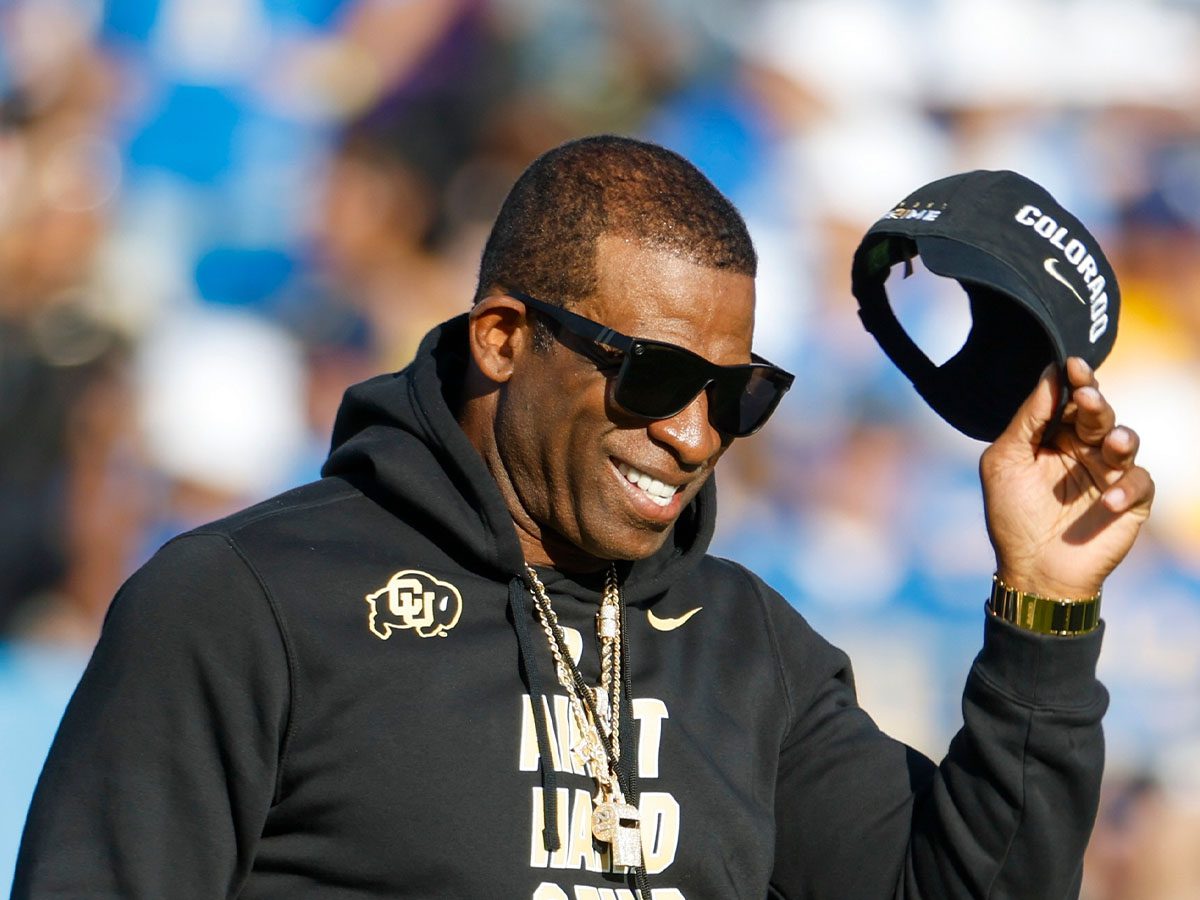
Colorado football coach and NFL Hall of Famer Deion Sanders has found himself in the crosshairs of an anti-religion group, the Freedom From Religion Foundation (FFRF), after having a pastor pray over his team following a recent victory. The FFRF issued a four-page letter condemning Sanders’ actions, accusing him of unconstitutional religious activities for allowing Pastor Dewey Smith to pray with the team after their September 22 win against Baylor University.
The FFRF’s letter claimed that Sanders’ use of a team chaplain at a public university infringes upon the rights of players who may not share his Christian faith. “Coach Sanders’ team is full of young and impressionable student-athletes who would not risk giving up their scholarship, playing time, or a recommendation from the coach by speaking out or opting out of his unconstitutional religious activities – even if they strongly disagree with his beliefs,” the letter stated. The organization contended that Sanders was using his position to impose Christianity on the team, labeling it “unconstitutional religious coercion.”
This is not the first time Sanders has faced scrutiny from the FFRF over his open expression of faith. When Sanders took the helm as Colorado’s head coach in 2023, the group raised concerns about his overt Christian practices, prompting the university to provide Sanders with training on religious expression and nondiscrimination policies.
Despite the FFRF’s complaints, Sanders has received support from the legal community. The First Liberty Institute, a law firm specializing in religious liberty cases, has stepped in to defend Sanders’ actions. According to Keisha Russell, a constitutional lawyer with First Liberty, Sanders is well within his legal rights to bring prayer into the locker room.
“FFRF’s letter is beyond inaccurate,” Russell said in a statement. “There are multiple cases about chaplains being allowed in public institutions, and it’s clearly legal.” While no Supreme Court case has directly addressed chaplains in a public university football setting, Russell referenced the landmark 2022 case of Bremerton High School football coach Joe Kennedy. In that case, the Supreme Court ruled in favor of Kennedy, who had been suspended and later fired for praying on the field after games. The Court found that banning his personal prayer violated his constitutional rights.
Russell believes that Sanders’ situation is strikingly similar to Kennedy’s case. “If Sanders’ case were to go to the Supreme Court, I believe he would win, especially given the Court’s recent rulings on religious expression and students,” she said.
Sanders, who has been open about his Christian faith throughout his career, has often used his platform to share his spiritual journey. After a devastating divorce in 1998, Sanders said he experienced a profound encounter with God. During an interview with Bear Grylls in 2023, he recounted a moment of despair when he nearly took his own life but was saved by divine intervention. “I ran my car off the side of the highway… and it didn’t flip. I was still there. That’s when I came to the Lord and said, ‘God, you take me. I give up,'” Sanders shared.
Since then, Sanders has been outspoken about his devotion to Christ, both in his personal life and as a leader in the football world. At his introductory press conference as Colorado’s head coach, Sanders offered a heartfelt prayer, giving thanks to God for the opportunity. “Out of all the people in the world, God chose me. For that, I thank Him,” Sanders said. “Each and every day, I’m trying to please Him.”
The legal and spiritual battle surrounding Sanders highlights the broader debate over religious freedom in public institutions. While the FFRF continues to challenge public expressions of faith, advocates like First Liberty argue that religious activities, including prayer, are protected under the First Amendment.


